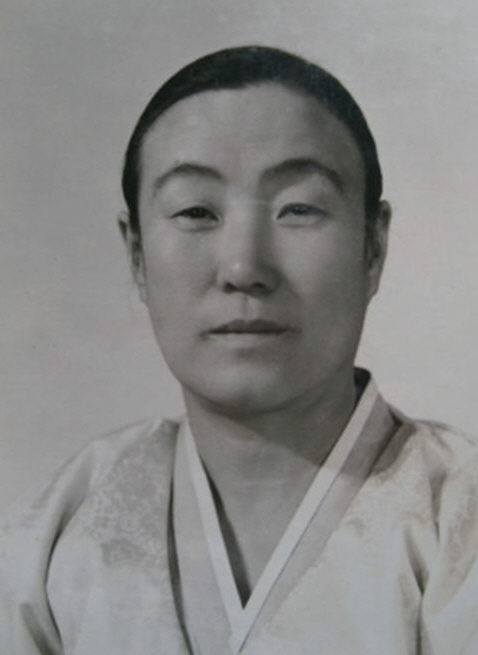In Memory of My Mother
¾î¸Ó´Ï(ëÜà÷Óì)¸¦ Ã߸ðÇϸç
 In the midnight on September 3, 2002, Mother passed away.
In the midnight on September 3, 2002, Mother passed away.
Her life was full of ups and downs keeping abreast with socio-economic changes of Korea. She had to spend her twenties under the Japanese occupation, thirties in the hard times of the Korean War, and fifties engaged in the economic development. After her age turned into seventies, she could see a globalized world. In 1989, my parents visited their children living in New York and Los Angeles.
She lived a life from a colonial state to agricultural then industrialized, finally democratized society of the nation.
The young generation could seldom understand her life story. How did a woman get married before the age of 20, and give birth to four sons and five daughters. At that time, this was a common thing, although it is unusual and extraordinary these days.
Is it due to the generation gap? Didn't we discard traditional values for the benefit of modernization?
On the funeral day, I read the following chronicles of my mother.
The Brief Chronicles of the late Eun Sung-Deok
The late Eun Sung-Deok was born on September 4, 1916 (lunar calendar) to the late Eun Chi-Whang, who had served as a magistrate of counties of Chonbuk Province, as his eldest daughter. She got married the late Park Nae-Ok in 1934, and brought up four sons and five daughters. They celebrated the 60th anniversary of marriage in 1994. In 1996, she was parted from her husband by death. After six years, she followed him to the Heaven.
We are gathering here not only to pay the last honors to a woman but also to look back our past and the roots of the Korean society represented by her life.
She could be educated only up to the level of elementary school because she was a woman living under the Japanese occupation. So she had an aspiration of higher learning by encouraging her children to study further as far as they could.
While my father had hard times financially, the expenses for education were the first and foremost item of all living expenses. So her children had never been ousted from schools owing to unpaid tuition fees, which was usual in the 1950s and 1960s in Korea.
She had never told children to study hard, nor affected their school lives, but three of children and sons-in-law have become scholars and professors.
She was responsible for the living of her family as well as relatives during the economic hardship following the Korean War and economic depression. At that time, a number of relative students stayed at her house, but she was never claiming for expenses even though she was not paid because she understood their financial situation.
Also she was never discontented with small income of her husband, a life-long salaried man. She saved as much as she could, and borrowed money from the rich relatives if necessary.
When she moved to Seoul to educate children, she could lease only a small room. But in the course of her life, she managed to secure improved dwelling houses for family, finally at the most prestigious residential area in Seoul.
It was like a miraculous jar of flour which was never used up (1 Kings 17:16) in her life time.
Even in her last days, she paid her hospital expenses and could distribute handsome amount of money to her descendents.
As her name "establishing virtues"(à÷Óì) indicated, she gave graceful benefits to others. She gave the robust health and self-reliance spirit to her children. She provided shelter like residence and food to her relatives in the economic hardship.
In this context, we are reminded of a conventional saying.
That is, "A beautiful wife makes you happy for three weeks, a intelligent wife ensures you three-year happiness, a good wife guarantees three-decade happiness. But a wife of wisdom makes three generations happy and comfortable."
I think so, and Mother was the very example of that kind of woman.
(By Whon-Il Park, September 6, 2002 in the Korean version)
 In the midnight on September 3, 2002, Mother passed away.
In the midnight on September 3, 2002, Mother passed away.